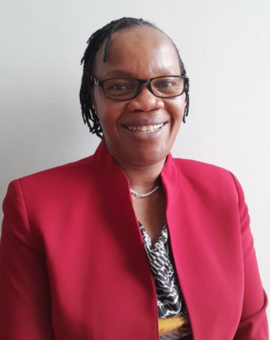The scorecard on women’s political participation and representation in Africa

The world is just coming to terms with the “2024 Super Election year” results, which saw over half the world’s population go to the polls. In Africa, 19 presidential, general, and local elections were held. 2025 marks the 30th anniversary of the Beijing Declaration and Platform for ActionBeijing Declaration and Platform for Action, 25 years since the United Nations Security Council Resolution 1325, 22 years since the adoption of the Maputo Protocol and 5 years to the 2030 Agenda in particular SDG 5 and related targets such as target 5.5. The Women’s Political Participation Programme (WPP) program is anchored on these normative frameworks.
The Women in Political Participation (WPP), program is a Pan African programme that aims to contribute to the advancement of gender equality in politics and governance, in line with the Maputo Protocol of 2003; various associated sub-regional protocols and standards including the Sustainable Development Goals (SDGs). The programme is funded by the Embassy of Sweden in Ethiopia and operates in eight African Countries including Botswana, Cote d’Ivoire, Democratic Republic of Congo, Eswatini, Kenya, Senegal, Tanzania and Zimbabwe and works with the Africa Union as well as the Regional Economic Blocs.
The programme operates as a consortium led by International IDEA in partnership with FAWE, FEMNET, Gender Links, IFAN, PADARE and WLSA. Furthermore, the WPP is complemented and reinforced by the EU-funded Women and Youth Democratic Engagement (WYDE) Women’s Leadership which seeks to Advance Transformative Gender Social Norms to Enhance Women and Youth Participation and Representation in Leadership and Decision-Making in Sub-Saharan Africa.
International IDEA as a think-and-do tank ensures research informs policy and practice. Therefore, the WPP program during the first phase of the project, produced insightful publications that are reflective of Africa’s progress in political participation and representation and articulated the challenges women face in the quest to meaningfully participate in Africa’s political arena. The publications include the WPP Africa Barometer, The Motivation for Women in Politics: The Contemporary Politics of Women’s Participation and Representation in Africa and The Research on Challenges and Opportunities for Women Politicians with Disabilities in Africa are aligned to the Sustainable Development Goal (SDG) goal 5. 5 and Leaving No One Behind.
The second edition of the WPP Africa Barometer 2024 showed a slight increase in women's representation in African parliaments, from 24 per cent to 25 per cent over three years, despite 36 African countries having elections since 2021. The publication noted slight increases in numbers of women across most indicators including in the Electoral Management bodies, Speakers of Parliaments, local government, Cabinet and top executive positions with the most notable increase being women elected as Mayors of Capital Cities in Africa. However, there is a decrease in political party leadership, which could explain the low numbers possibly due to gatekeeping. Despite Africa having the youngest population globally, their representation in the parliaments is only 2.2 per cent with less than 1 per cent being young women. The report also highlights barriers to women's political participation, such as formal and informal political parties, electoral systems, media, limited financial resources, societal norms, gender stereotypes, and violence against women in politics.
The Motivation for Women in Politics: The Contemporary Politics of Women’s Participation and Representation in Africa highlights that the global race to increase women's representation in politics is faltering, despite various protocols and commitments to democratic principles. African countries have the necessary policy and institutional frameworks to address the gender political participation gap. Governments can lead change by domesticating these frameworks, integrating gender perspectives, and developing practical measures. Motivation for women in political participation comes from changing political environments, feminist movements, desire to serve, liberation struggles, and support systems. The publication recommends that African governments should accelerate domestication, implement mandatory 50/50 gender quotas, increase budgetary allocations, integrate gender considerations into policies, and include political education and literacy in curricula.
The Research on Challenges and Opportunities for Women Politicians with Disabilities in Africa conducted in six African countries found that women with disabilities are underrepresented in political leadership, despite the ratification of the United Nations Convention on the Rights of Persons with Disabilities. The inclusion of women with disabilities is often based on constitutional or legal thresholds, creating a double jeopardy of disability and being a woman. Despite this, there has been positive progress in women's representation in legislative bodies. Key barriers include negative sociocultural beliefs, stigma, low adherence to party provisions, absence of effective sanctions by elections management bodies, lack of financial resources, social media and political violence. The study recommends that African governments review election financing laws, address violence, increase security, strengthen oversight capacity, and support mass public education
All these reports indicate that urgent action is required to ensure women in all their diversities must be fully included and participate effectively with equal opportunities for leadership at all levels of decision-making in political, economic and public life. Larger investments in women’s political participation including women in all their diversities — young women, women with disabilities, and women from marginalised communities — must continue for economic growth, innovation, peace and security and ultimately for the transformation of the continent.
To achieve the Africa Union Aspiration 6 - An Africa, whose development is people-driven, relying on the potential of African people, especially its women and youth then the continent must #AccerelateAction and the time is now.
Disclaimer: Opinions expressed in this commentary are those of the authors and do not necessarily represent the institutional position of International IDEA, its Board of Advisers or its Council of Member States.




